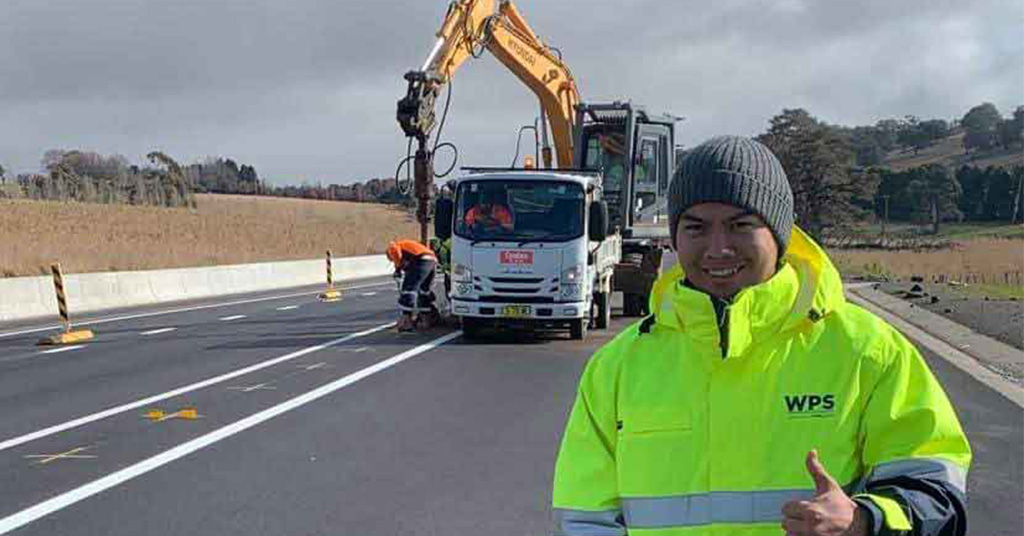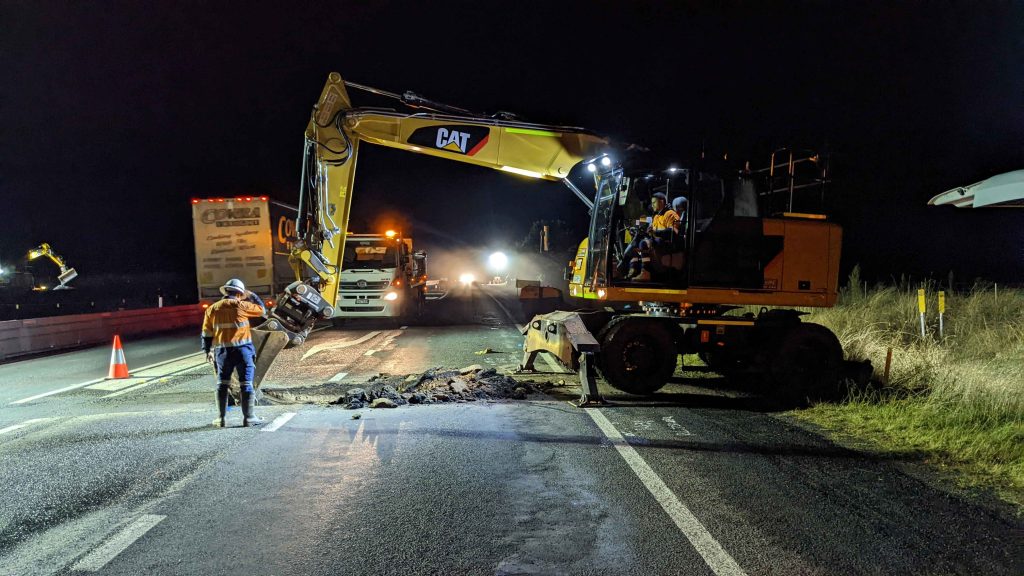Have you ever thought about what it takes to build a town? Whether it’s delivering clean water, constructing highways or designing tunnels and skyscrapers, civil engineering has left a mark on our local landscape. And as our world constantly changes, civil engineering qualifications have to evolve to make sure engineering professionals are at the top of their game.
It starts with a spark
In regional New South Wales there’s lots to be done, and plenty of opportunities to do it. Take Mark Hernandez and David Ghrayche for example. The pair are working as cadets with Western Project Services in Bathurst. And that’s not the only thing they have in common. They’re both studying civil engineering qualifications at Charles Sturt University.
Mark and David are halfway through an engineering degree and are among 53 cadet engineers in the course, working across Australia (and beyond) while studying online.
“I left high school and did an apprenticeship as a fitter machinist. Subsequently, I travelled for a couple of years and decided I didn’t want to be a fitter anymore. So I went to university and started studying,” David said.

Close to home
The consensus here is that working and studying regionally has its benefits.
“I’m able to stay closer to home. Which gives me the opportunity to do my share and give back to my local community through engineering. Like ensuring the road networks are safe,” said Mark.
Obviously David agreed, saying Charles Sturt was a perfect fit.
“Being a smaller regional university, you have more access to the academic and support teams. And if you have any questions or anything, I’ve got their mobile numbers.”
Many students have found a passion for working regionally, filling demand for civil engineers across Australia. Charles Sturt has cadets working across NSW and Victoria, in Brisbane, Sydney, Canberra and Queensland. One fourth-year student is even working in Leeds, England.
Engineering a passion
Civil engineers are behind some of the country’s biggest road and rail projects. And there’s more to it than meets the eye. David’s focus is on safety across our road network —and improving crash blackspots.
“I started looking at curve analysis works. That was part of my undergrad thesis.”
During his study, David developed equations and collected data on driving trends and our road network. As a result, this helped him advise authorities on advanced curve warning signs. David explains they are speed recommendations. They’re “those yellow signs you see when you come up to a curve. Which most people probably don’t pay much attention to.”
For Mark, there have been some obvious drivers behind his passion for the industry. Although other motivations have emerged along the way.
“The main contributor to my decision to study engineering is the financial aspect. But as I do it more, I’m finding other motivations like being in an industry that is constantly evolving. Especially knowing that I can play a major role in solving problems.”

Explore civil engineering qualifications
Keeping Australia connected is no easy task, but you could play a role in shaping our country. If you’re passionate about sustainability and innovation, maybe a civil engineering qualification is right for you.
And by applying for a Transgrid Civil Engineering Scholarship before enrolling in our Bachelor of Engineering (Honours), you could receive a $20,000 cash boost to help you through your degree, as you learn to keep our country connected. We have $2 million worth of scholarships up for grabs to help 100 civil engineering students study at Charles Sturt – and one of them could be you.



You must be logged in to post a comment.